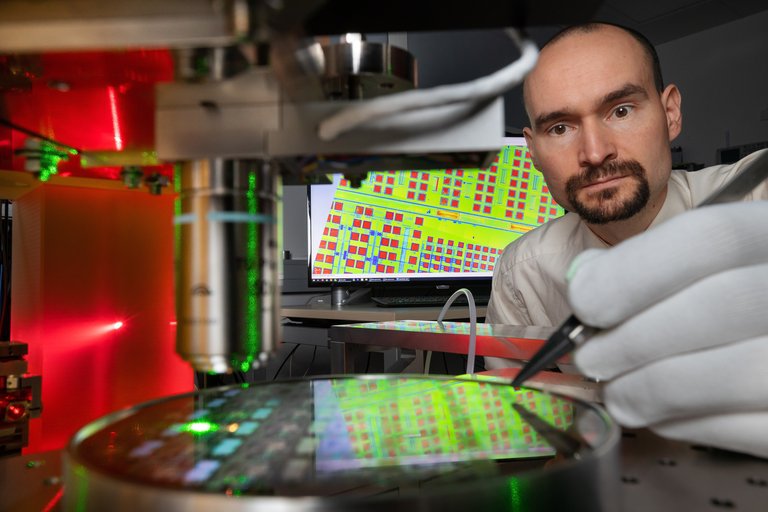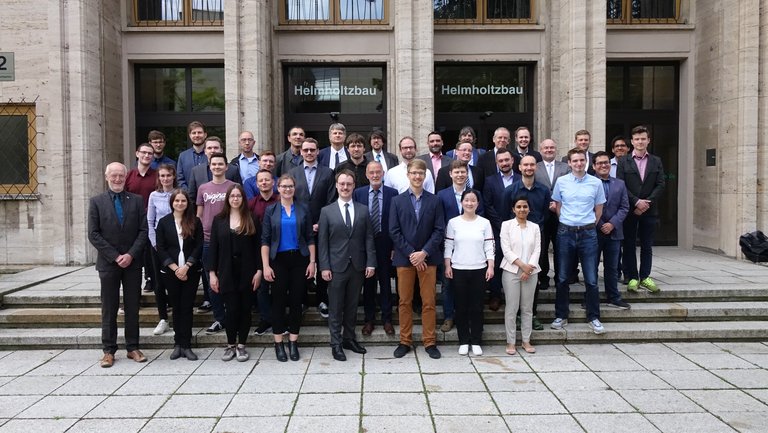The Deutsche Forschungsgemeinschaft (DFG, German Research Foundation) has published two detailed reports on the duration of doctoral studies and the ratio of completed to non-completed doctorates in DFG-funded research collaborations. In this context, the Research Training Group 3D-NanoFab at TU Ilmenau performs above average.

Above-average length of doctorates
The DFG is the largest research funding organisation in Germany and its two reports are among the most reliable and detailed statistical sources on doctorates in Germany. The first evaluation examined the duration of doctoral projects in DFG Collaborative Research Centres and Research Training Groups. According to this analysis, doctoral researchers need an average of 51 months, i.e. a good four years, from the start of their doctorate to the oral defence of their dissertation. By contrast, the doctoral researchers in the first completed generation of doctoral students in the 3D-NanoFab Research Training Group at TU Ilmenau successfully completed their doctorates in less than 37 months on average. According to the DFG analysis, on average only 18 percent of the degrees were completed in up to three and a half years, and only five percent of these in up to three years. The Research Training Group 3D-NanoFab is thus among the absolute leaders of DFG-funded qualification programmes in terms of the duration of doctorates. This result is all the more impressive because, according to the DFG report, doctoral projects in the engineering sciences take a particularly long time, averaging 57 months.
92 percent success rate
The same applies to the number of successful completions. In its second evaluation, the DFG analysed the ratio of completed to non-completed doctorates. For this purpose, the doctorates begun in 2012 in the funded collaborations were compared with the dissertation entries in the German National Library up to 2020. This showed that 79 percent of the doctoral researchers had verifiably completed their doctorate within eight years. In the case of 21 percent, it can be assumed that the doctoral project was not completed. In the first generation of the Research Training Groups 3D-NanoFab, 12 out of 13 doctorates, i.e. 92 percent, were successfully completed. This puts the Ilmenau Research Training Group at the forefront in this area as well. The spokesperson of the DFG Research Training Group 3D-NanoFab, Professor Steffen Strehle:
Based on the DFG reports, we can compare ourselves with sound, statistical data, and the fact that we were able to achieve above-average results with regard to both analyses naturally makes us very proud. In addition to the cooperative and interdisciplinary research atmosphere and the university's proven competencies, e.g. in the field of micro- and nanotechnologies and in metrology, these excellent results are also due to intensive scientific supervision and, last but not least, the high motivation and willingness to perform of the doctoral students.
DFG funding until 2026
The interdisciplinary Research Training Group "Tip- and laser-based 3D-Nanofabrication in extended macroscopic working areas" (3D NanoFab) has been funded by the DFG since 2017. It offers young knowledge researchers the opportunity to conduct specialized cutting-edge research in a research and qualification program and to earn a doctorate at the highest level. The first generation of doctoral students completed their research on schedule in June 2020, and the Research Training Group is currently in its second funding period. Since April of this year, Prof. Steffen Strehle, head of the Group of Microsystems Engineering at TU Ilmenau, and Prof. Thomas Fröhlich, head of the Group of Process Measurement Engineering, have been leading the 3D-NanoFab Research Training Group. They succeeded the previous directors Prof. Eberhard Manske and Prof. René Theska, who co-founded TU Ilmenau's internationally renowned expertise in the field of nanometrology. When the Kolleg comes to an end in 2026, a total of 39 young doctoral students from all over the world will have been trained at TU Ilmenau to become experts in nanofabrication.
The DFG Research Training Group NanoFab also integrates excellently into the teaching at TU Ilmenau, where students are involved in research at an early stage and scientific career paths are opened up to them. Interested parties can find all information under Master's programs TU Ilmenau.

Contact
Prof. Steffen Strehle
Spokesman Research Training Group "NanoFab"

